First API POST request with Postman
- Add a new request by clicking the three dots next to SMS folder. Name it Create a message.
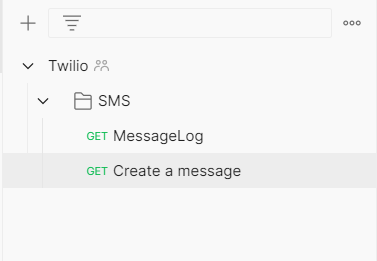
- In the comment tab, add the link to the create message API documentation: https://www.twilio.com/docs/sms/api/message-resource#create-a-message-resource
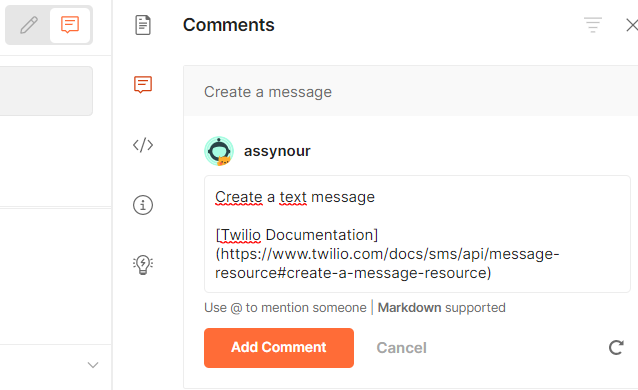
- Switch to build mode by clicking on the pen icon. Change the request type from GET to POST.
- Copy the url from the GET request from previous lab
- Click on Body tab to set the parameters for the create message API.
- Select x-www-form-urlencoded.
- Fill-in the create message API parameters: To, From, Body. You can also add a MediaUrl. Feel free to add your own medi url.
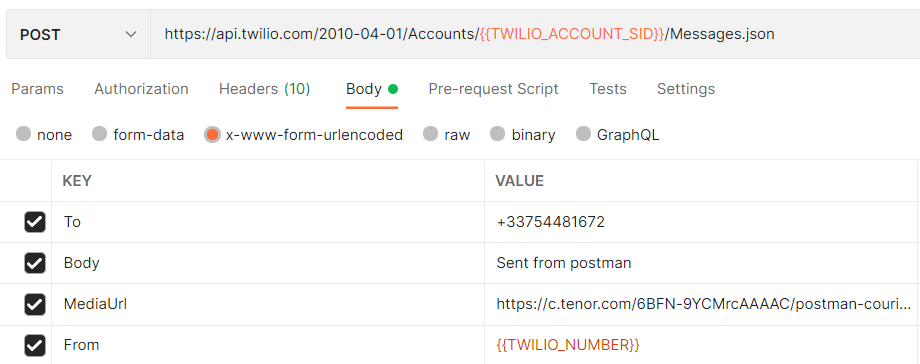
- The From parameter should be your Twilio trial number that you can copy from your twilio account console. You can add a variable for it in Twilio collection named TWILIO_NUMBER.
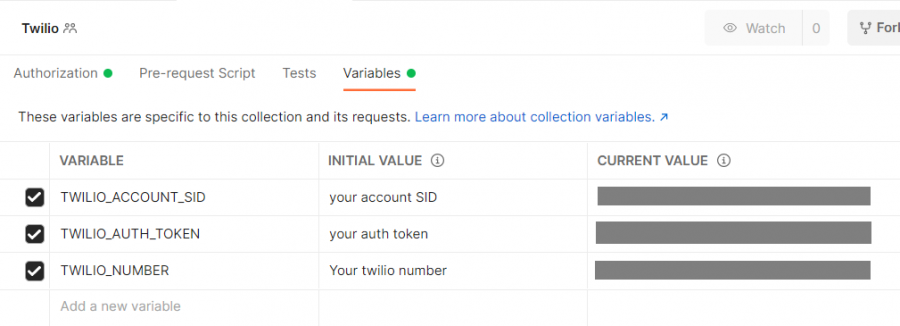
- Click Save, then Send.
- The body response indicates that the post request is successfully sent and a text message should be received on your phone.
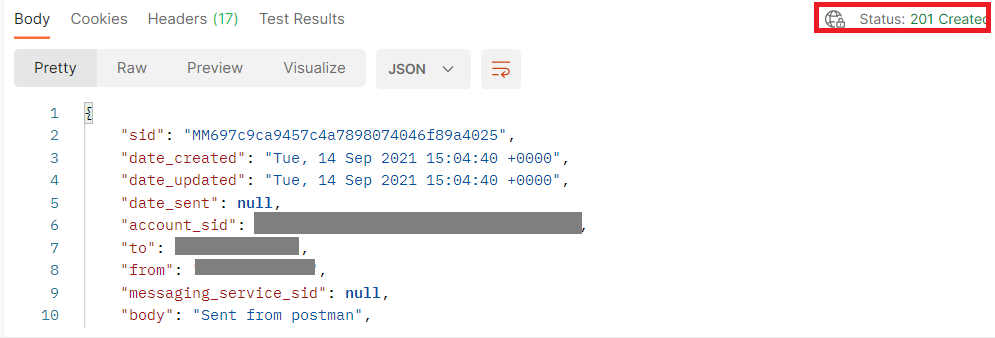
- Go back to the Message log GET request and click on Send. You'll the message you've just sent added to the list in the Body response.
- If you've sent a media, you'll see a key named media. Click on the corresponding url.

- You will get a GET request which returns all media you've sent in this message. Save the request and click on Send.
- If your request is executed successfully, you can see in the Body response information about the media you've sent, including its uri.
- Click on the link next to uri. A second GET request is created which returns information about this specific media. If you remove the .json extension at the end, you can return the actual media.
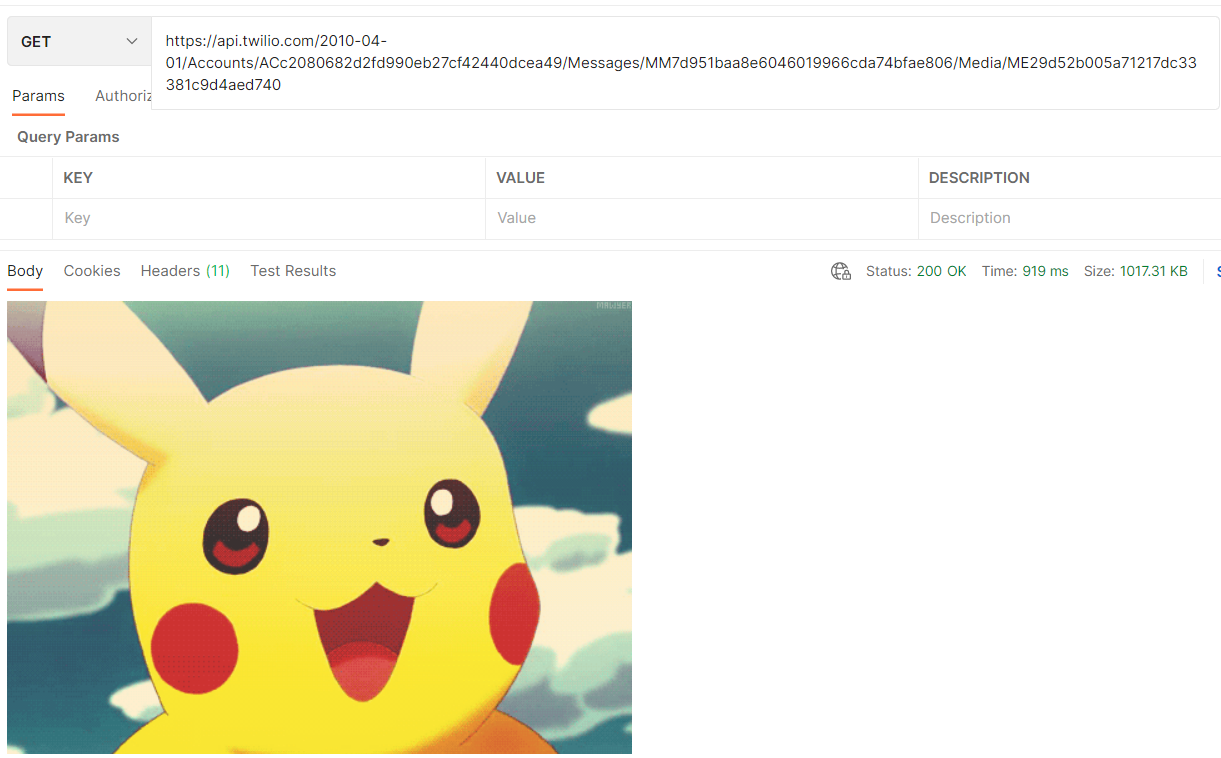
- Check the response size which indicates that it is about 1MB. You can use the cacheability feature of the API client-server model.
- In the Response body, click on headers. The key last-modified indicates that it supports caching.
- Copy the date value and click on the headers tab of the request. Add the key if-modified-since with a value the copied date.

- Click on Send. Check the Body response which returned this time only the status not modified. This means that this API support cacheability.
